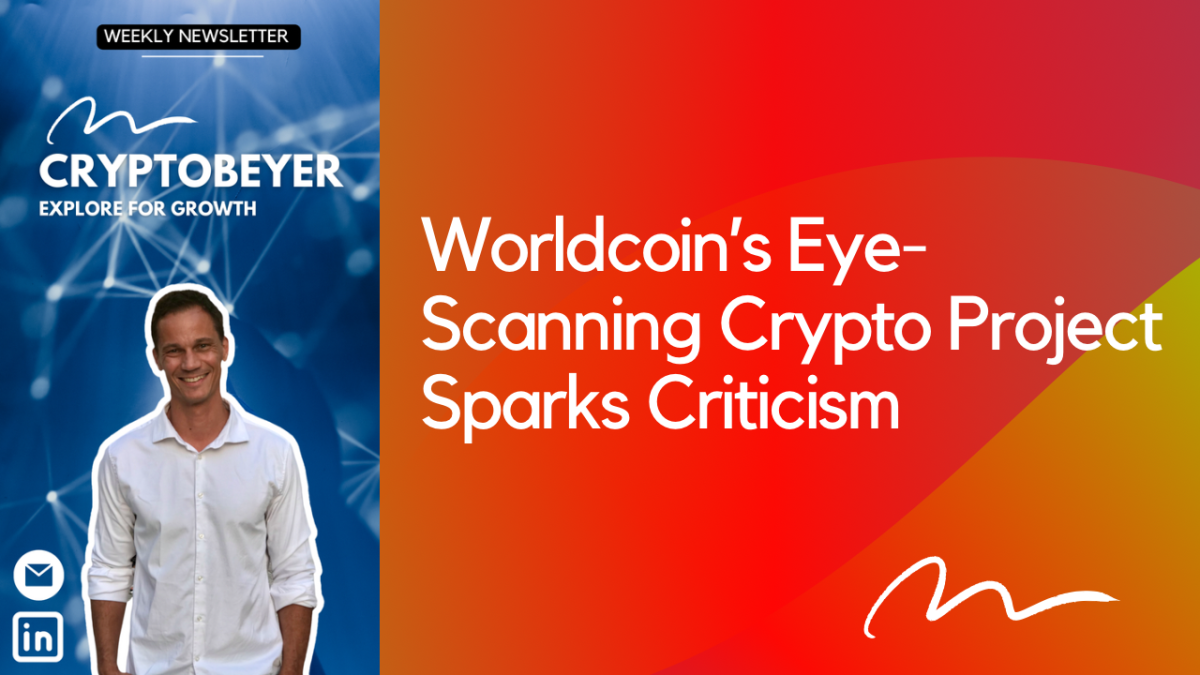Did you hear about the controversial launch of Worldcoin where people’s eyes are scanned? It has sparked skepticism within the cryptocurrency community. Let me tell you why.
Firstly, what is this novel thing? Worldcoin is a cryptocurrency project that aims to provide a reliable way to authenticate humans online called World ID, to counter bots and fake virtual identities facilitated by artificial intelligence. Worldcoin is claiming to build the world’s largest identity and financial network as a public utility, giving ownership to everyone, and creating universal access to the global economy regardless of country or background. Sure, we need to be able to identify ourselves in the digital world. But not like this.
World Coin is led by Sam Altman, known for his involvement in OpenAI and ChatGPT. Worldcoin has garnered attention for its unconventional approach to identity verification. However, critics are voicing serious concerns about the privacy implications of collecting and storing biometric data on a global scale. No, it is not like face-id, or fingerprint on Iphone because that data is only stored on your phone. With Worldcoin your biometric data is stored in the hands of a company.
Hang on. You need to know some tech stuff here to get the gist. World coin uses zero-knowledge proofs, often abbreviated as ZK-proofs. It serves as a cryptographic technique to demonstrate knowledge of specific data without divulging the actual data itself. In a ZK-proof system, a prover can convince a verifier that they possess knowledge of certain information, like information about a person´s eyes, without disclosing the information in question. This technology is used in other crypto currencies that is developing digital id to be used in elections. Remember, other id data about a person could be date of birth or gender and it does not have to be biometric.
The problem is that World Coin is unclear in what they will do with the data in the future. While users are enticed with the promise of receiving coins in exchange for eye-scanning, the actual utility of these tokens remains unclear. It’s like selling your intimate biometric data for a potential future use case. The risk of data breaches and unauthorized access is a major worry. Do we really need this novel technology? Well, the health care industry can use biometric data to find diseases.
The lack of transparency in Worldcoin’s governance structure has also raised red flags. I have heard that the decision-making power is concentrated in the hands of a select few. I need real decentralization to have trust.
But I underlined that the most significant hurdle facing Worldcoin is the absence of a clear and practical use case for its tokens. Encouraging individuals to undergo eye-scanning for financial gain feels like a bribe.
It is not just the crypto space that is critical. In a series of tweets, Edward Snowden strongly advised against using biometrics for any purpose. He specifically warned against the practice of cataloging eyeballs or employing biometrics for anti-fraud measures. Despite the project’s use of privacy-preserving zero knowledge proofs (ZKs), Snowden firmly maintained that relying on biometrics for identification is not a good idea. He emphasized that treating the human body as a mere ticket-punching tool is not acceptable, regardless of how clever the technology may seem.
Privacy advocates and experts in the cryptocurrency space are keeping a close eye on how World Coin is being adopted. Yes, crypto exchanges are listing the worldcoin token and some people are hoping to grab a trip to wealth. Currently it has 2 million users in 35 countries. If you ask me, not participating is a probably a smart move.

